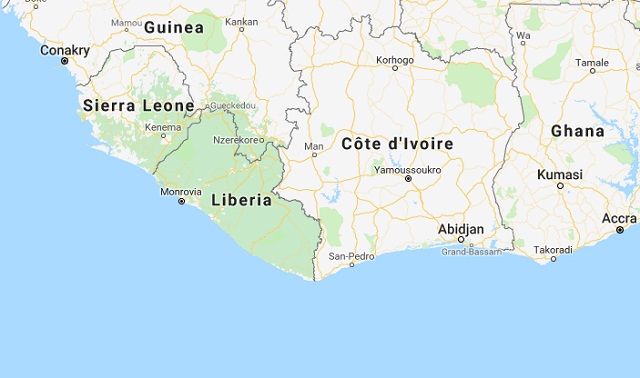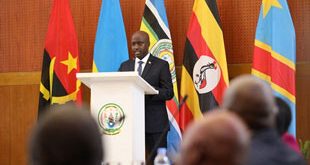
Sime Darby, for example, signed a 63-year concession agreement with the Liberian government in 2009 to develop 220,000 hectares (544,000 acres) of land, but has since struggled to plant more than 10,000 hectares.
Angry residents burnt palms and rioted in this area in 2016. In 2015, a senior company official was taken hostage and a government minister wounded during a riot at a plantation in southeast Liberia owned by Golden Veroleum, a rival firm.
Sime Darby told AFP it is operating within the agreed boundaries of the plantation, and says it meets regularly with a committee working on villagers’ behalf.
“Crop compensation was paid in 2014 and 2017 totalling over $1 million for over 1,500 farmers,” said plantation manager David Parker in an email to AFP.
Palm oil is used in many household products and foodstuffs, but has long been linked to deforestation and loss of natural habitats.
The industry is far from unique: Liberia’s extractive industries — iron ore, gold, diamonds — face similar accusations of driving land disputes.
During former president Ellen Johnson Sirleaf’s 12 years in power, several multi-decade concession agreements were renewed or changed hands, throwing new scrutiny on land deals.
Ali Kaba of Liberia’s Sustainable Development Institute said land disputes “have always been a problem”, but people were “now more aware” following advocacy by international organisations since the civil war.
– Tribal certificates –
Particular attention has focused on the misuse of so-called “tribal certificates”, documents that indicate the consent of a local chief to transfer a parcel of land to an applicant.
They are at the heart of activists’ anger over changes to the 2014 Land Rights bill, as they are often abusively used by prospectors as title deeds, despite possessing inferior status legally.
“The major change was the tribal certificates, as the 2017 version accepts tribal certificates with little or no vetting,” said De Brouckere.
Toe, of the land authority, however, maintains the pending bill, if passed by Weah’s government, could change the lives of millions.
Indigenous communities would gain “the right to own whatsoever land that they have, the right to lease that land, the right to exclude others from that land,” he said.
 The Independent Uganda: You get the Truth we Pay the Price
The Independent Uganda: You get the Truth we Pay the Price



